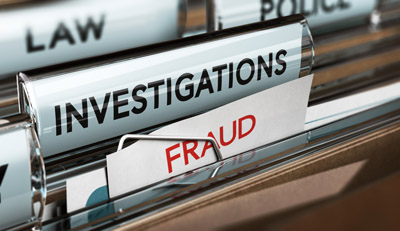A U.S. House committee hearing made clear the total cost of fraud and waste in taxpayer-funded pandemic relief programs remains unknown.
Members of the House Committee on Oversight and Accountability argued about who was to blame for widespread fraud in a range of federal pandemic relief programs, but they never got an answer to a key question: Just how much fraud was there?
Federal officials have floated loss estimates for some specific programs.
A federal report released in late January estimated more than $60 billion in unemployment insurance fraud during the pandemic. The U.S. Department of Labor reported about $878 billion in total unemployment benefits were paid from April 2020 through September 2022.
The Pandemic Response Accountability Committee recently identified 69,323 questionable Social Security numbers used to obtain $5.4 billion from the Small Business Administration’s COVID-19 Economic Injury Disaster Loan program and Paycheck Protection Program. The programs provided nearly $1.2 trillion in assistance.
At a Feb. 1 hearing, U.S. Rep. Paul Gosar, R-Arizona, asked federal experts if estimates of $560 billion in fraud were accurate.
Identifying the total cost of pandemic relief fraud won't be easy and getting a final figure could take time, said Comptroller General of the United States Gene Dodaro, the head of the U.S. Government Accountability Office.
"It will be a while before the full extent of the fraud is known," Dodaro said. "There have been over a thousand people who have pled guilty or been convicted, there are over 600 charges still pending against people, the Small Business Administration inspector general has 536 active investigations right now, the Department of Labor inspector general is opening up 100 new cases every week. So this is going to go on for a while. There are definitely indications of widespread fraud. But it's impossible to estimate the full extent right now."
Lawmakers passed six COVID-19 relief laws that provided about $4.6 trillion for pandemic response and recovery. Of that, about $4.1 trillion had been spent as of Nov. 30, according to the U.S. Department of the Treasury.












